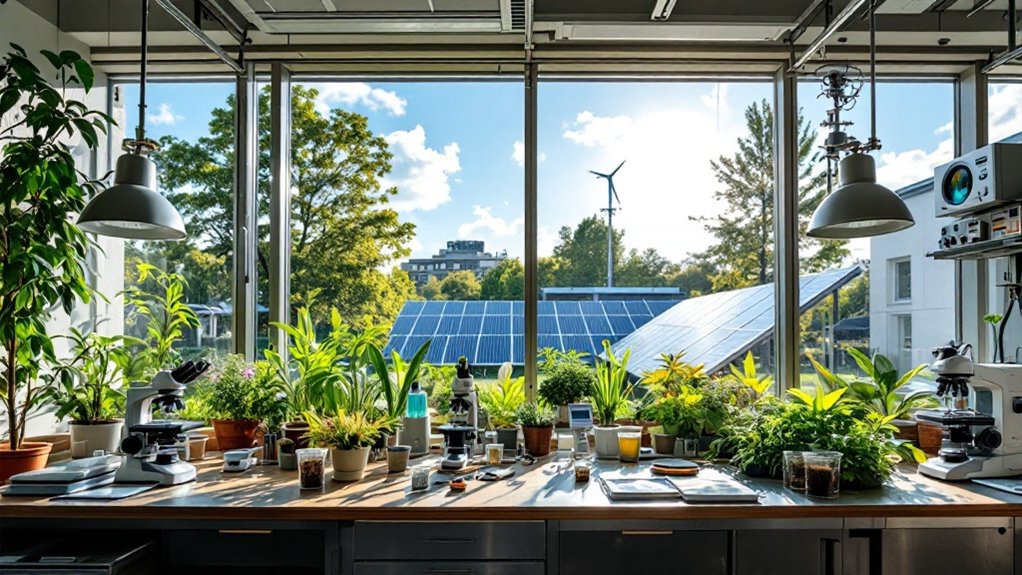Environmental Sustainability degrees transform eco-warriors into science-backed professionals who actually get things done. This interdisciplinary program blends natural sciences, social sciences, and economics – because saving the planet isn’t just about hugging trees anymore. Graduates earn median salaries of $73,230 while tackling everything from endangered species to urban greening. It’s currently the second-fastest-growing career field, proving that Mother Nature means business. The path ahead reveals how science meets activism.

The race to save our planet just got a whole lot more professional. Environmental Sustainability degrees are transforming passionate tree-huggers into skilled environmental defenders who actually know what they’re doing. This interdisciplinary program blends natural sciences, social sciences, and economics into one powerhouse degree that’s turning heads in both the public and private sectors.
Students dive deep into ecological systems and human-environment interactions, which is fancy talk for learning why humans can’t seem to stop messing up the planet and how to fix it. The curriculum isn’t for the faint of heart – it’s packed with environmental science, sustainability principles, policy courses, and enough data analysis to make your head spin. But hey, someone’s got to figure out how to keep Earth habitable. Students must complete 14 core requirements to earn their Bachelor of Science degree in this comprehensive program. The program requires completion of 36 credits spread across core courses, electives, and a capstone project.
Want options? This degree’s got them. Students can specialize in everything from sustainable energy to environmental justice. Some focus on saving endangered species, while others dream up ways to make cities greener. And yes, there’s even a track for those obsessed with sustainable agriculture. Because apparently, we need to figure out how to feed billions of people without destroying the planet. Meeting the Paris Agreement targets requires dramatic shifts in how we produce and consume energy, making sustainability expertise more crucial than ever.
The job market‘s looking pretty sweet too. The World Economic Forum ranked sustainability specialists as the second-fastest-growing job in 2023. With a median annual wage of $73,230 for environmental scientists, saving the planet isn’t just noble – it’s profitable. Companies are scrambling to hire sustainability experts faster than polar ice is melting.
Programs come in all shapes and sizes – traditional campus settings, online options, and hybrid formats. Most include hands-on experience through internships or field work, because you can’t learn everything about nature from behind a computer screen. Many programs cap off with a thesis project, proving students can do more than just recycle properly.
The bottom line? Environmental Sustainability degrees are creating a new breed of professionals who combine scientific know-how with practical solutions. They’re not just tree-huggers anymore – they’re the ones making sure we’ll still have trees to hug in the future.








